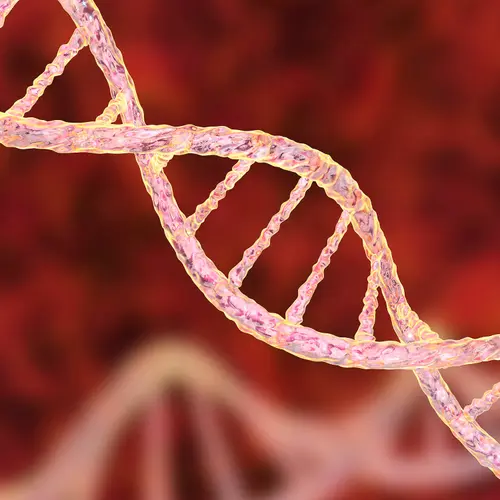You have options for treating your child’s ADHD. While some parents choose medication as part of the treatment plan, others decide not to use it. What works best for your child may be different from what works for others.
Your doctor may recommend medication because it helps manage ADHD symptoms. With medication, your child may be more focused and less hyperactive, impulsive, and distractible.
But you may worry about side effects, cost, and how medication may affect your child’s development.
These are common concerns about ADHD medication.
Side Effects
While some kids do well with medication, others have side effects that are uncomfortable, affect how they function, or interfere with their growth and development.
Side effects may include:
- Appetite loss
- Dizziness
- Dry mouth
- Headaches
- Irritability
- Mood changes
- Rebound effects when medication wears off
- Sleep problems
- Stomachaches
- Tics
If you’re considering medication and are concerned about side effects, talk to your doctor.
Some side effects get better or go away as your child gets used to them. You can manage others with certain strategies. For example, if your child has trouble falling asleep, you can try a different type of medication, change the dosage, or change the timing of when they take it.
How It Affects Your Child’s Growth
You may worry that taking medication may affect your child’s growth.
Research suggests ADHD medication has little or no impact on how your child grows. Some kids may have reduced growth. But a recent study suggests it doesn’t change how fast children grow or how tall they become as adults.
Cost
The cost of ADHD medication depends on your insurance plan and which type of medication your child takes. If you don’t have insurance, it could cost $200 or more. If you have insurance, you may have a co-pay for each prescription, which can range from $11 to $110.
If you don’t have insurance or you have a high co-pay, these prescription assistance resources can help:
- Patient assistance programs (PAP). Some medication brands offer lower prices if you can’t afford the regular price. First you fill out paperwork to show your financial need, then the company tells you what you qualify for. Ask your doctor, pharmacist, or the manufacturer how to apply.
- Discount cards and coupons. Some pharmacies , like Walgreens and GoodRx, offer discount cards with up to 80% discounts on prescriptions. Some ADHD organizations, like CHADD (Children and Adults with Attention-Deficit/Hyperactivity Disorder), also offer discount cards. Look online or call for details.
- Nonprofit prescription assistance agencies. Nonprofit groups can help you find discounts through prescription assistance programs and databases. Try the Partnership for Prescription Assistance, NeedyMeds, or RxAssist.
Keeping Up With Medication and Doctor Visits
It takes time to manage your child’s medication.
First, your child’s doctor will need to find the right dose. Then they’ll need to monitor how your child is doing and adjust the medication if necessary.
You’ll need to get on a regular schedule so your child takes each dose at the right time. You may need to coordinate with their caregivers or school to make sure teachers or nurses give them the right medication at the right time.
Personality Changes
Most ADHD medications increase the level of dopamine in your child’s brain, which reduces your child’s ADHD symptoms. But this shouldn’t change your child’s personality.
If your child seems different, it may be a sign the dose is too high. If they seem zombie-like, tearful, or irritable, your doctor can adjust the dose.
If your child is on a low dose but still seems different, the doctor may recommend another treatment option. It’s rare, but for some kids, these symptoms only go away if they stop taking the medication.
Addiction Problems
You may worry that taking medication will make your child prone to substance abuse when they’re older.
While research suggests that kids who have ADHD could be more likely to abuse drugs or alcohol when they’re teens or young adults, the reason seems to be ADHD itself, not medication.
But your child’s risk of addiction might rise if they abuse their ADHD medication. That means taking the wrong dose or using it in ways that aren’t prescribed, like crushing, snorting, or injecting it. That can lead to euphoria, which increases addiction risk.
If your child or teen has a history of substance abuse, it may be best to avoid medication.
When Do Doctors Not Recommend Medication
For some kids, it’s best to avoid ADHD medication because it may affect other medical conditions.
Talk to your doctor if your child has any of these conditions:
- A history of alcohol or substance abuse
- A history of taking monoamine oxidase inhibitors (MAOIs)
- Allergy or sensitivity to stimulant medications
- Coronary artery disease
- Glaucoma
- Heart or blood vessel disease
- Irregular heartbeat
- A history of fainting or passing out
- Motor tics or a family history of Tourette’s syndrome
- Overactive thyroid
- Psychosis
- Severe anxiety, tension, or nervousness
- Uncontrolled high blood pressure
Whether or not you choose medication, your doctor may recommend behavior management. This often includes parent training, classroom intervention, and school support. Good communication with your child, their teachers, and their coaches can make a big difference.
Talk to your doctor about what’s best for your child. Try to be patient. It may take time to find the right treatment.

